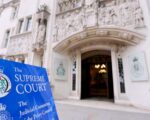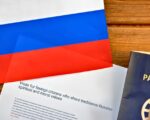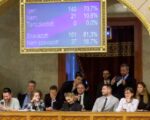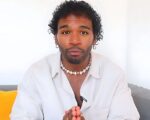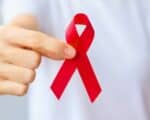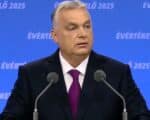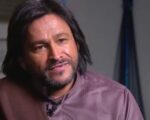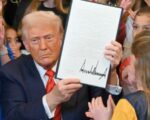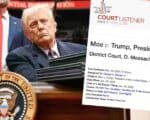>> U.N. council creates watchdog for LGBT rights
[spacer]
Le Conseil des droits de l’homme des Nations unies a voté ce jeudi la création d’un poste d’expert indépendant pour « renforcer la protection des personnes homosexuelles et transgenres contre les violences et la discrimination dont elles sont victimes » partout dans le monde.
Après un débat enflammé de près de quatre heures, marqué par de vives objections de l’Arabie saoudite ou encore du Pakistan, le Conseil de 47 membres a adopté la résolution présentée par les pays latino-américains par 23 voix contre 18 et six abstentions.
Indépendamment des spécificités nationales et régionales, comme des divers contextes historiques ou religieux, le texte rappelle qu’il est du devoir des États, quels que soient leurs systèmes politiques, économiques et culturels, « de promouvoir et protéger » les droits inaliénables de tous les êtres humains, et libertés fondamentales.
« Souvenez-vous d’Orlando », a demandé l’ambassadeur mexicain aux délégués, en référence au massacre homophobe perpétré le 12 juin : « Donnons espoir à des
millions de personnes ».
This is historic. Today the @UN Human Rights Council voted in favor of establishing a #LGBT rights watchdog. pic.twitter.com/WQJTC1p251
— Andy Marra | 홍현진 (@Andy_Marra) 30 juin 2016
Les Etats-Unis et les principaux pays européens ont soutenu le texte, auquel la Russie, la Chine et 16 pays africains et majoritairement musulmans se sont opposés. L’Inde et l’Afrique du Sud font partie des abstentionnistes. Une surprise pour le second, sachant qu’une délégation Sud-Africaine avait porté en 2011 une résolution déjà hautement symbolique visant à « condamner les actes LGBT-phobes à l’échelle internationale (OSIG) ».
Pour de nombreux observateurs présents à cette Salle des civilisations, ce vote est « historique ».
Mandaté pour trois ans, ce spécialiste onusien devra notamment évaluer l’application des instruments et outils déjà mis en œuvre. Etablir le dialogue et une coopération avec les États et acteurs dans la lutte contre ces formes multiples et aggravées de violence dont sont victimes des personnes en raison de leur orientation sexuelle et de leur identité de genre. En recenser les causes profondes pour y remédier. Et rendre, dès 2017, un rapport annuel au Conseil et à l’Assemblée générale.
Ouvertement gay, marié et père de deux jeunes enfants, Randy Berry, nommé en février 2015 premier « envoyé spécial des États-Unis pour les droits humains des personnes LGBTI », a salué la décision, déplorant toutefois que les opposants au texte aient obtenu d’ajouter un libellé assimilant la reconnaissance des droits des homosexuels à une « imposition culturelle ».
Valentine Monceau
stophomophobie.org
[spacer]
>> The top human rights body of the United Nations voted on Thursday to appoint an independent monitor to help protect gay and transgender people around the world from violence and discrimination.
The U.N. Human Rights Council, based in Geneva, creates an « independent expert » charged with identifying the root causes of violence and discrimination against people based on their sexual orientation and gender identity, and then talking with governments about ways to protect them.
The resolution that passed was the United Nations’ most overt expression of gay rights as human rights, and is considered a milestone.
The vote on the 47-member council passed only narrowly, with 23 nations in favor, primarily from Europe and Latin America. Though that was not a majority, six countries abstained, including India, South Africa and the Philippines. The 18 votes against it came from Russia, Africa and most of the Muslim countries on the panel. Albania was the only member of the Organization of Islamic Cooperation to favor creating an envoy for LGBT issues. The seats periodically rotate, and the United States currently does not sit on the council.
In a bow to the sensitivities of those countries where homosexuality is widely frowned upon, the resolution had a last-minute amendment added noting that « the significance of national and regional particularities and various historical, cultural and religious backgrounds must be borne in mind. » Nevertheless, it adds, « It is the duty of States, regardless of their political, economic and cultural systems, to promote and protect all human rights and fundamental freedoms. »
Randy Berry, the State Department’s Special Envoy for the Human Rights of LGBTI Persons, called the decision historic, but expressed disappointment that opponents had succeeded in adding wording suggesting LGBI rights may be a cultural imposition.
« It diminishes very slightly something extraordinary that happened, » he said in an interview. « As we look at what motivates that kind of objection, it’s a misplaced fear that the intent of creating an independent expert is to condemn or criticize. All along, it was clear the dialogue is to be informative, a resource for all countries, including our own, to get better on LGBTI issues. »



